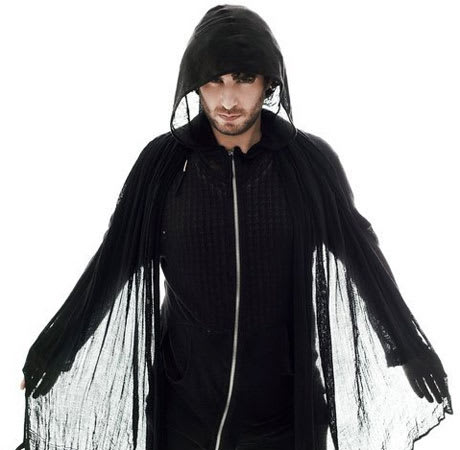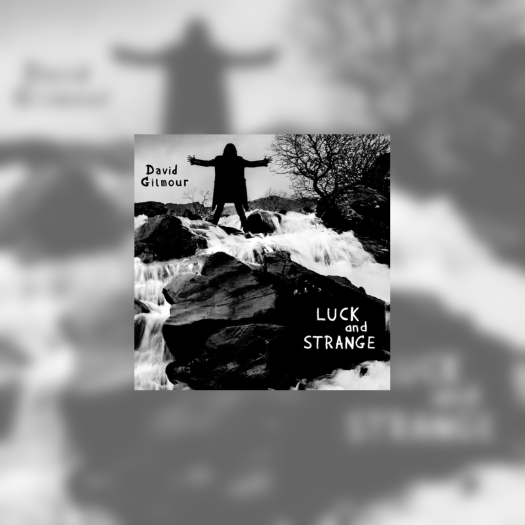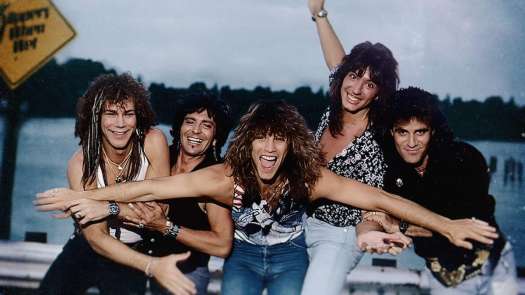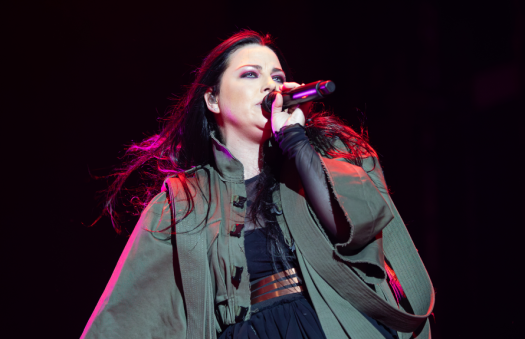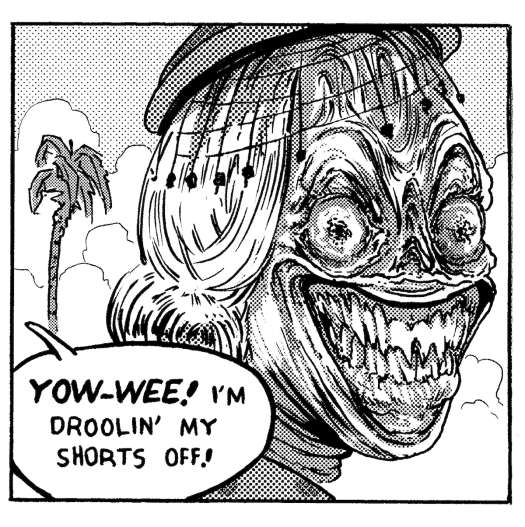It's been three years since Canadian ex-pat Mathew Jonson's last solo album, Agents of Time. Although he has spent the last five years living in Berlin, the former Vancouver-based producer acknowledges that a hectic touring schedule and a lack of balance in his life, along with his commitment to his other projects, which include the improvised live project, Cobblestone Jazz, his four-piece, the Modern Deep Left Quartet, and a duo with his brother called Midnight Operator, have divided his attention. Despite being at the current epicentre of electronic music, it took some time away in India and a recalibration of what was important to him for the next phase of his creative pursuits to really flourish.
Her Blurry Pictures seems to mark a period of transition in your life. How do you feel these changes are reflected in the mood and themes of the album?
I think the new album had to do with making some conscious decisions a few years back to take some time for myself. I was very wrapped up in the music industry and I didn't really have that balance for a long time, and it was really sucking a lot of energy out of me. It became something that was being really detrimental in my life. Thank god I came to a point in my life where I made those decisions. I choose to take some time out and start going to India and start being more conscious and present with my life, with the things that I do, my actions and the people I surround myself with. Things just came together to the point where I was much happier and not necessarily drawing creativity out of things that were full of drama or negativity. It just became where I was a lot more healthy and more positive of a person I think. The music is reflected in the transformation of my personal life; [it] feels a lot brighter and lighter to me then a lot of my stuff from the past eight years or so. At this point I'm just happy that I chose this path to turn my life into something that feels good and positive for the people around me, my environment and my effect on the rest of the world.
Do you feel that openness to look at yourself and ask those hard questions has allowed you as an artist to explore those areas?
I hadn't really thought of it like that because when I write music, I have always just written what feels right at the time. Music for me is such a reflection on my life that when I am writing good music that really feels genuine, I can really hear it in the music and I think other people can too. You can hear in the early Itiswhatitis stuff that the music is really pure, it's not being held back in a lot of ways. When I first moved to Berlin, I wasn't in the best headspace and I found it really difficult to work. I think it was because my life was completely out of balance. Over the last couple years, that has changed. Don't get me wrong, I still have my ups and downs, but I have been able to find a better balance.
You have a very distinct, almost instantly recognizable style and I think that is very difficult to have in the era of music that we are in.
When it comes down to it, the majority of people out there are making their music heavily from samples. I think a lot of times it becomes difficult to discern between a lot of different artists these days because so many of them are just chopping up whatever different tracks that they can to make sounds out of those things, and sometimes it really works and sometimes it doesn't. I have a bit of a love/hate relationship with it. I think it can be done really tastefully, but other times I don't have a lot of respect for what they are doing.
Music has become really disposable these days, but you have been able to create something that has some longevity to it. How do you balance between moving your sound forward and keeping some of those elements that have been part of who you are as an artist?
The biggest thing I try to do is to practice piano and organ as much as I can. I try to get as deep as I can into the equipment in my studio. I am lucky that I am in the position that I have been able to buy a lot of really beautiful equipment over the last couple years. I think all those things together has allowed me to evolve my sound. If I want to evolve my sound and I am not going to sample someone who is an incredibly gifted pianist or someone who has been playing sax all their life, it means I actually have to do that myself. I am trying to develop a lot of different things. I am trying to develop my voice. I still haven't used my voice completely straight up without chopping or effecting it.
You were recently involved in the Red Bull Music Academy. What were you able to take away from those two weeks?
It was the most diverse, creative, and intense experience that I have ever had. To be thrown into a situation that is so diverse was really wonderful. It opens a lot of doors and creates a lot of ideas. I found it very rewarding because it exposing me to so many different people and ideas that I normally wouldn't come in touch with.
With this new album, you have mentioned you feel like music is like a mirror. What does this new album say about your current state?
Most of it was written in 2011 and 2012. I was finally settling into Berlin and I met a really wonderful girl that I have been with ever since. So she certainly brought a lot of light into my life. It all just started to click. I was doing sessions with Cobblestone Jazz, Midnight Operator and the Modern Deep Left Quartet and everything started to roll and get momentum. There was this deadline with the studio getting ripped down in December 2012. Those kind of deadlines are good for me. When I know something is going to end, I really seem like I want to get as much done as I possibly can. There was a lot of things happening that led to a lot of good music.
Why were you having to relocate the studio?
What's happening in Berlin right now is that a lot of people's studios, which were kind of run down apartment buildings or whatever, are getting torn down because the housing market is doing well. The good side of it is the new studio I am in is much better acoustically, it's really clear and creative feeling and it's an amazing building. I was lucky to have found something that really fits. I moved in and immediately started writing music.
You have released your music on a number of different labels over the years, including your own. What was the motivating factors behind deciding to work with Crosstown Rebels?
I have known Damian for a long time now. We had always talked about doing a single and it always takes ten times longer than you expect. Damian is always someone I have given my music to anyway, to play or get feedback from. When it came time with this album, I sent the music out to a small group of friends on Dropbox. I think it only took Damian 24 hours and he wrote me back saying he wanted to release the whole album. It just seemed so easy and there was synchronicity. It just clicked. I am really happy to be working with those guys. They have a really diverse, nice range of music right now. I think in a way I fit in, but in a way I don't, which I kind of like.
Her Blurry Pictures was just released, but what do you have on the horizon?
What's in the mastering house right now is a new single from the Modern Deep Left Quartet (MDLQ), which if people don't know what that is, it's the same group as Cobblestone Jazz, just adding the Mole to the mix. We have been writing music together for a long time, 15 years or something like that. We are going to start to put out a bunch of new records on Wagon Repair. It's really nice stuff, so I am happy about that. That will be the next vinyl that comes out that I am on. I am doing another record with my brother as Midnight Operator. Also, the Typerope EP on Itiswhatitis is also at the mastering house and will be re-released this summer.
Her Blurry Pictures seems to mark a period of transition in your life. How do you feel these changes are reflected in the mood and themes of the album?
I think the new album had to do with making some conscious decisions a few years back to take some time for myself. I was very wrapped up in the music industry and I didn't really have that balance for a long time, and it was really sucking a lot of energy out of me. It became something that was being really detrimental in my life. Thank god I came to a point in my life where I made those decisions. I choose to take some time out and start going to India and start being more conscious and present with my life, with the things that I do, my actions and the people I surround myself with. Things just came together to the point where I was much happier and not necessarily drawing creativity out of things that were full of drama or negativity. It just became where I was a lot more healthy and more positive of a person I think. The music is reflected in the transformation of my personal life; [it] feels a lot brighter and lighter to me then a lot of my stuff from the past eight years or so. At this point I'm just happy that I chose this path to turn my life into something that feels good and positive for the people around me, my environment and my effect on the rest of the world.
Do you feel that openness to look at yourself and ask those hard questions has allowed you as an artist to explore those areas?
I hadn't really thought of it like that because when I write music, I have always just written what feels right at the time. Music for me is such a reflection on my life that when I am writing good music that really feels genuine, I can really hear it in the music and I think other people can too. You can hear in the early Itiswhatitis stuff that the music is really pure, it's not being held back in a lot of ways. When I first moved to Berlin, I wasn't in the best headspace and I found it really difficult to work. I think it was because my life was completely out of balance. Over the last couple years, that has changed. Don't get me wrong, I still have my ups and downs, but I have been able to find a better balance.
You have a very distinct, almost instantly recognizable style and I think that is very difficult to have in the era of music that we are in.
When it comes down to it, the majority of people out there are making their music heavily from samples. I think a lot of times it becomes difficult to discern between a lot of different artists these days because so many of them are just chopping up whatever different tracks that they can to make sounds out of those things, and sometimes it really works and sometimes it doesn't. I have a bit of a love/hate relationship with it. I think it can be done really tastefully, but other times I don't have a lot of respect for what they are doing.
Music has become really disposable these days, but you have been able to create something that has some longevity to it. How do you balance between moving your sound forward and keeping some of those elements that have been part of who you are as an artist?
The biggest thing I try to do is to practice piano and organ as much as I can. I try to get as deep as I can into the equipment in my studio. I am lucky that I am in the position that I have been able to buy a lot of really beautiful equipment over the last couple years. I think all those things together has allowed me to evolve my sound. If I want to evolve my sound and I am not going to sample someone who is an incredibly gifted pianist or someone who has been playing sax all their life, it means I actually have to do that myself. I am trying to develop a lot of different things. I am trying to develop my voice. I still haven't used my voice completely straight up without chopping or effecting it.
You were recently involved in the Red Bull Music Academy. What were you able to take away from those two weeks?
It was the most diverse, creative, and intense experience that I have ever had. To be thrown into a situation that is so diverse was really wonderful. It opens a lot of doors and creates a lot of ideas. I found it very rewarding because it exposing me to so many different people and ideas that I normally wouldn't come in touch with.
With this new album, you have mentioned you feel like music is like a mirror. What does this new album say about your current state?
Most of it was written in 2011 and 2012. I was finally settling into Berlin and I met a really wonderful girl that I have been with ever since. So she certainly brought a lot of light into my life. It all just started to click. I was doing sessions with Cobblestone Jazz, Midnight Operator and the Modern Deep Left Quartet and everything started to roll and get momentum. There was this deadline with the studio getting ripped down in December 2012. Those kind of deadlines are good for me. When I know something is going to end, I really seem like I want to get as much done as I possibly can. There was a lot of things happening that led to a lot of good music.
Why were you having to relocate the studio?
What's happening in Berlin right now is that a lot of people's studios, which were kind of run down apartment buildings or whatever, are getting torn down because the housing market is doing well. The good side of it is the new studio I am in is much better acoustically, it's really clear and creative feeling and it's an amazing building. I was lucky to have found something that really fits. I moved in and immediately started writing music.
You have released your music on a number of different labels over the years, including your own. What was the motivating factors behind deciding to work with Crosstown Rebels?
I have known Damian for a long time now. We had always talked about doing a single and it always takes ten times longer than you expect. Damian is always someone I have given my music to anyway, to play or get feedback from. When it came time with this album, I sent the music out to a small group of friends on Dropbox. I think it only took Damian 24 hours and he wrote me back saying he wanted to release the whole album. It just seemed so easy and there was synchronicity. It just clicked. I am really happy to be working with those guys. They have a really diverse, nice range of music right now. I think in a way I fit in, but in a way I don't, which I kind of like.
Her Blurry Pictures was just released, but what do you have on the horizon?
What's in the mastering house right now is a new single from the Modern Deep Left Quartet (MDLQ), which if people don't know what that is, it's the same group as Cobblestone Jazz, just adding the Mole to the mix. We have been writing music together for a long time, 15 years or something like that. We are going to start to put out a bunch of new records on Wagon Repair. It's really nice stuff, so I am happy about that. That will be the next vinyl that comes out that I am on. I am doing another record with my brother as Midnight Operator. Also, the Typerope EP on Itiswhatitis is also at the mastering house and will be re-released this summer.
